Creativity is the use of the imagination or original ideas, especially in the production of an artistic work. Creativity comes from the Latin term creare, “to create, make”. Creativity occurs when you take an idea from one state and you transform it into another form either by adding, subtracting, remixing, editing, or re-imagining it. We all have the potential to be creative if we develop our innate talent. It is in all of us, we all have ideas but the difference between does we call creative(s) and the consumer(s) is what they do with the idea. As American author, Leonardo Buscaglia once noted “Your talent is God’s gift to you. What you do with it is your gift back to God.”
Creativity is a verb
The hardest part of starting any creative venture or artistic work is starting. You don’t have to be great to start but you have to start to be great. Creativity is a verb and not a noun. Most of us want the adulation of being called an Entrepreneur, Writer, Artist, or Leader, associated with greatness without actually doing the work. Writers write, artists create, Entrepreneurs start businesses, and Leaders lead. A creative create his/her art whether it is painting, writing, blogging, dancing, or any form of expression. As English playwright Ernest Hemingway once quipped “There is nothing to writing. All you do is sit down at a typewriter and bleed.” The key to getting great in any creative venture is to start, practice, continuously show up, pay attention to the details, embrace failure, confront your fears, and execute relentlessly.
You don’t have to be great to start but you have to start to be great.
Ignore the Naysayers
Most of us don’t believe that we are creative. We started telling ourselves this lie because someone we looked up to like a teacher, family member, friend, or acquaintance said that we are not good at writing, singing, dancing, or some creative adventure. We believed them and it has affected our creative confidence ever since. It is tough to believe in yourself when you are very young and we tend to believe adults because we feel they know what they are talking about or have figured it out. However, the reality is that everyone is winging it and trying to figure it out.
Most of us would never get our creative juices flowing because of the self-limiting belief that we have been indoctrinated with by adults, caregivers, and even our parents while we were growing up. It is tough being creative and it is tougher when people around you do not see the big picture.
Jay-z – Grade Six teacher sparking his imagination while Uncle doubted him when he started out
In 2013, Hot 97 FM Angie Martinez spoke with Jay-Z and he shared some great insights on fear projection, ignoring the naysayers, and believing in yourself. He shares the story of how his uncle did not believe in his musical exploits when he started.
So don’t listen to anyone because their experiences is unique to who they are.
What I believe is don’t listen to anyone, everyone is scared. Everyone tells you how things worked out but it worked out for YOU that way. It’s even hard for me. I just give the information and then let the artist make their decision. I can’t say, “You should do this because this is how it works!” It may not work that way for artist A, B, or C the same way it worked out for me. All I can do is provide information. So don’t listen to anyone because their experiences is unique to who they are. And then a lot of people will try to put their fears on you, “You can’t do that!” No, you can’t do it. They’re just projecting it. They’re putting things they don’t think that they can do on you, and you possibly can do it.
“Uncle said I’ll never sell a million records I sold a million records like a million times” – Jay Z
Like my uncle, I don’t think he meant anything by it and I’ve said it so many times today. I know he’s going to be at Christmas, “Why do you keep bringing this up?” My uncle said I’m never going to sell a million records. I sold a million records like a million times. I’m his nephew, I don’t think he meant any malice, he was just projecting his fears. “Are you crazy? How are you going to do that?” How? I’m sure there are things that I do now that he can’t believe I was able to accomplish. He couldn’t even see it at the time. So he was just projecting and putting his fears on me. Always believe that you’re great even before anybody else believes it.
In a 2010 Forbes Interview with Jay-z and Warren Buffet, Jay spoke about how a field trip to his grade six sparked his creativity and imagination:
I grew up in the Marcy Projects in Brooklyn. Our classrooms were flooded. It was very difficult for teachers to give you one-on-one attention. And there was this one sixth-grade teacher named Miss Lowden. She must have seen something in me, and she gave me this attention and this love for words. It’s funny how it works, just a little bit of attention. She also took us on a field trip to her house, which opened me up to the world. My neighborhood had been my world. It’s the only thing I had seen. I saw a whole different world that day, and my imagination grew from there. I wanted that. I aspired to have that. The small things. She had an ice thing on her refrigerator. You know, you push it and the ice and the water comes down. I was really amazed by that. I was like, I want one of those. It’s true.
False Emotion Appearing Real (FEAR)
Motivational speaker, Les Brown observed “There are only two fears we are born with, the fear of falling and the fear of loud sound. All other fears we learn such as the fear of failure, fear of success, fear of judgment.” Fear comes in different form, shape and size, anytime you are trying to create something new or bring something forth to the universe. Fear comes disguised as procastination, addiction, worry, anxiety, analysis paralysis. Author Steve Pressfield calls it Resistance, an enemy to your creativity.
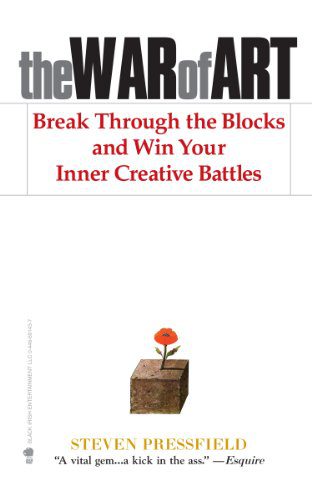
In his book, The War of Art: Break through the blocks and Win your inner creative battles, author Steven Pressfield writes about resistance which he calls the number one enemy of creativity. He writes:
Most of us have two lives. The life we live, and the unlived life within us. Between the two stands Resistance.
According to Pressfield, any act that rejects immediate gratification in favor of long-term growth, health, or integrity. Or, expressed another way, any act that derives from our higher nature instead of our lower. Any of these will elicit Resistance.
Resistance will tell you anything to keep you from doing your work. It will perjure, fabricate, falsify; seduce, bully, cajole. Resistance is protean. It will assume any form, if that’s what it takes to deceive you. It will reason with you like a lawyer or jam a nine-millimeter in your face like a stickup man. Resistance has no conscience. It will pledge anything to get a deal, then double-cross you as soon as your back is turned. If you take Resistance at its word, you deserve everything you get. Resistance is always lying and always full of shit.
There’s a secret that real writers know that wannabe writers don’t, and the secret is this: It’s not the writing part that’s hard. What’s hard is sitting down to write. What keeps us from sitting down is Resistance.
The sign of the amateur is overglorification of and preoccupation with the mystery. The professional shuts up. She doesn’t talk about it. She does her work. The professional understands that Resistance is fertile and ingenious. It will throw stuff at him that he’s never seen before.
The amateur, underestimating Resistance’s cunning, permits the flu to keep him from his chapters; he believes the serpent’s voice in his head that says mailing off that manuscript is more important than doing the day’s work.
The professional has learned better. He respects Resistance. He knows if he caves in today, no matter how plausible the pretext, he’ll be twice as likely to cave in tomorrow. The professional knows that Resistance is like a telemarketer; if you so much as say hello, you’re finished. The pro doesn’t even pick up the phone. He stays at work.
Resistance is not a peripheral opponent. Resistance arises from within. It is self-generated and self-perpetuated. Resistance is the enemy within.
Develop a beginners mindset
One of the hallmarks of successful and creative people is that they are life long learners, they have a beginners and growth mindset. They are always learning, they are students of their craft, studio rats, they first in the gym, studio, workshop, library and they are the last to leave. They understand that you can not give what you do not have: Writers read a lot, musicians listen to lots of music, their input determines their output, Garbage In, Garbage Out.
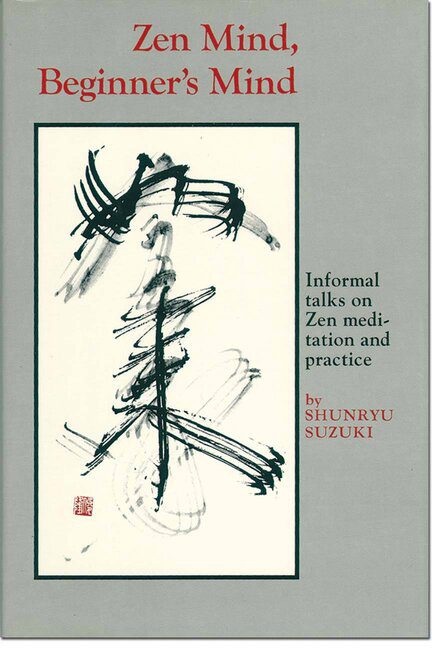
Zen monk and teacher Shunryu Suzuki, noted in his book Zen Mind, Beginner’s Mind: Informal Talks on Zen Meditation and Practice:
For Zen students the most important thing is not to be dualistic. Our “original mind” includes everything within itself. It is always rich and sufficient within itself. You should not lose your self-sufficient state of mind. This does not mean a closed mind, but actually an empty mind and a ready mind. If your mind is empty, it is always ready for anything; it is open to everything. In the beginner’s mind there are many possibilities; in the expert’s mind there are few.
In the beginner’s mind there are many possibilities; in the expert’s mind there are few.
In the beginner’s mind there is no thought, “I have attained something.” All self-centered thoughts limit our vast mind. When we have no thought of achievement, no thought of self, we are true beginners. Then we can really learn something. The beginner’s mind is the mind of compassion. When our mind is compassionate, it is boundless.
Embrace Failure
For the creative, failure is one of the tools of the trade, you have to embrace. You are going to be rejected by writing agents, publishing houses, deal with gatekeepers, rejection letters, false starts, etc. The creatives that we eventually celebrate are the ones that persevered, endured the trying times, continuously created and embraced failure as an ally.
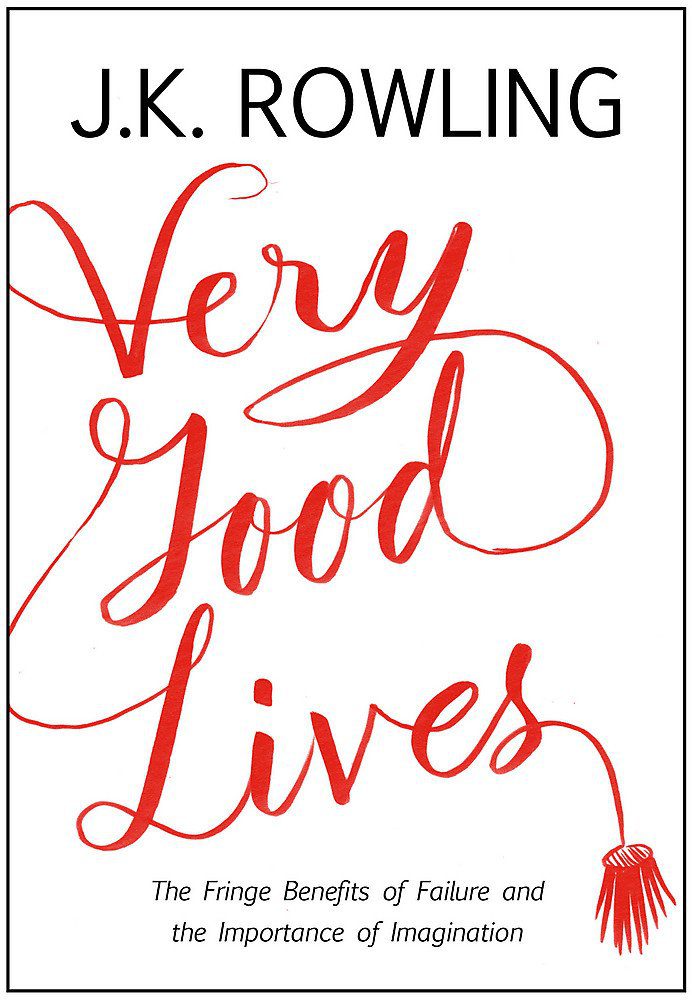
British author and creator of the Harry Potter fantasy series, J. K. Rowling delivered a very inspiring commencement speech to the 2008 Harvard University graduating class wherein she shared some great insights on the fringe benefits of failure and the importance of imagination.
So why do I talk about the benefits of failure? Simply because failure meant a stripping away of the inessential. I stopped pretending to myself that I was anything other than what I was, and began to direct all my energy into finishing the only work that mattered to me. Had I really succeeded at anything else, I might never have found the determination to succeed in the one arena I believed I truly belonged. I was set free, because my greatest fear had been realised, and I was still alive, and I still had a daughter whom I adored, and I had an old typewriter and a big idea. And so rock bottom became the solid foundation on which I rebuilt my life.
You might never fail on the scale I did, but some failure in life is inevitable. It is impossible to live without failing at something, unless you live so cautiously that you might as well not have lived at all – in which case, you fail by default.
Failure gave me an inner security that I had never attained by passing examinations. Failure taught me things about myself that I could have learned no other way. I discovered that I had a strong will, and more discipline than I had suspected; I also found out that I had friends whose value was truly above the price of rubies.
The knowledge that you have emerged wiser and stronger from setbacks means that you are, ever after, secure in your ability to survive. You will never truly know yourself, or the strength of your relationships, until both have been tested by adversity. Such knowledge is a true gift, for all that it is painfully won, and it has been worth more than any qualification I ever earned.
You will never truly know yourself, or the strength of your relationships, until both have been tested by adversity
Always Show Up
Overnight success is a myth that is popularized by reality TV shows that push creatives that we do not see their back story, their grind, thought process, their daily work habit and routine. We see talented people perform and we marvel at their creativity but we fail to realize that it takes a long time to be that great. We get rewarded in public for what we consistently practice in private.
80 percent of success in life is just showing up. – Woody Allen
Former undisputed heavyweight champion from 1970 to 1973, Joe Frazier once said:
“You can map out a fight plan or a life plan, but when the action starts, it may not go the way you planned, and you’re down to your reflexes – that means your [preparation:]. That’s where your roadwork shows. If you cheated on that in the dark of the morning, well, you’re going to get found out now, under the bright lights.”
The key to getting great is practicing your craft day in day out, relentlessly learning, reinventing yourself and showing up continuously. No one is born great, a genius, we all have it in us but you need to nurture your talent to be great. As American Congregationalist clergyman Henry Ward Beecher once noted “Greatness lies, not in being strong, but in the right using of strength; and strength is not used rightly when it serves only to carry a man above his fellows for his own solitary glory. He is the greatest whose strength carries up the most hearts by the attraction of his own.”
“We are what we repeatedly do. Excellence, then, is not an act, but a habit.” – Aristotle
The life of a creative can be tough and lonely, it requires lots of hardwork, perseverance, endurance, failing multiple times, false state, rejection, resilience, bias for action, reinvention and doing the work. There is no shortcut to the top, you have to work hard, go the extra-mile, put in the time to be great, confront your fears, embrace failure, trust the process and eventually, it would happen.
All the Best in your quest to get Better. Don’t Settle: Live with Passion.

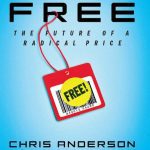
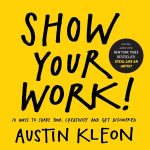
Comments are closed.